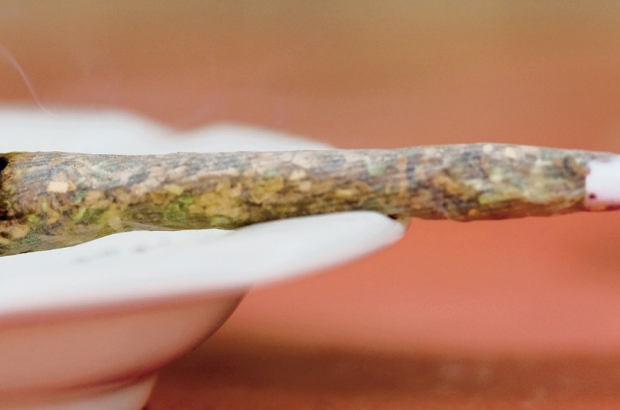- Daily & Weekly newsletters
- Buy & download The Bulletin
- Comment on our articles
Belgian drug legislation
Think Health, Not Drugs reads the motto of the UN’s International Day against Drug Abuse and Illicit Trafficking (June 26), more commonly known as World Drug Day. Whether or not you heed the recommendation, you may wish to separate hard fact from speculative hearsay when it comes to the legal implications of drug-taking.
This will sound staggering to anyone familiar with the British drug classification system (A for hard drugs such as heroin, cocaine and ecstasy; B for cannabis and amphetamines; C for anabolic steroids, ketamine etc), but until 2003, Belgian law did not recognise any distinction among the wide range of controlled substances. Even more bafflingly, it used the same blanket count of indictment (‘drug offence’) for manufacturing, selling and using. Then in 2003, possession of cannabis for personal use was deemed worthy of a less strict sanction (but only for the first two offences): an administrative fine varying between €82.50 and €137.50 for the first offence and between €143 and €275 for any repeat offence within a year. But as is so often the case, many directives, articles of law and pieces of jurisprudence are vaguer than the answers of a freshly apprehended dealer. Here are four cast-iron facts about drug laws in Belgium.
All non-prescription drugs are illegal
Whatever your stance on drugs may be, there is no avoiding this. Having said that, the possession of less than 3g of cannabis, or one plant or seed (not both!), by someone over the age of 18, will be regarded as a ‘lowest-priority offence’. Again, that doesn’t make it legal; it only recognises that some unlawful acts are more serious than others – that the occasional consumption of cannabis simply cannot be equated with running a Medellin-type cartel. Besides, prisons are full and police forces are stretched enough as it is. But remember that, legally speaking, cannabis, like heroin, cocaine and all controlled substances, is illegal. Anybody who says otherwise is wrong.
Making it worse
Selling drugs, including cannabis, will not be ignored by the authorities. Custodial sentences for selling cannabis alone range from three months to five years (and the line can be very thin between selling for profit and divvying up a ‘group purchase’ among friends). Other aggravating circumstances include consuming drugs in the company of minors or in a public place (park, bus stop, etc) near a school, as well as generally ‘causing public nuisance’ related to drug-taking. Unsurprisingly, this is open to interpretation and, therefore, highly subjective.
Another kind of deal
The crown prosecution (rather than the law itself) can decide to drop charges against an addict under certain conditions. These include, but are not restricted to, undergoing a rehab or weaning programme, or a relevant therapy. Of course, a judge may also opt to lighten or suspend a sentence on similar terms. This is not a guaranteed right, however – far from it. Many factors will be taken on board, chief among which is the threat posed by the accused.
Help is at hand
Why wait for an offer from a magistrate? “Access to specialist treatment centres is relatively easy,” says Antoine Boucher, communication officer for Infor-Drogues, a non-profit organisation offering help and advice to anyone affected, in whichever way, by drug abuse. “The best is to apply for several places. The mutuelle/ziekenfonds will even cover part of the costs for approved centres, most of which even help out with paperwork.” Which, in Belgium, is a huge relief.
WHERE TO TURN
• Infor-Drogues can be contacted via www.infordrogues.be (in French)
• Community Help Service Belgium runs a 24-hour helpline for anyone seeking support in English
tel 02.648.40.14 www.chsbelgium.org
• For more information about World Drug Day, see www.unodc.org









